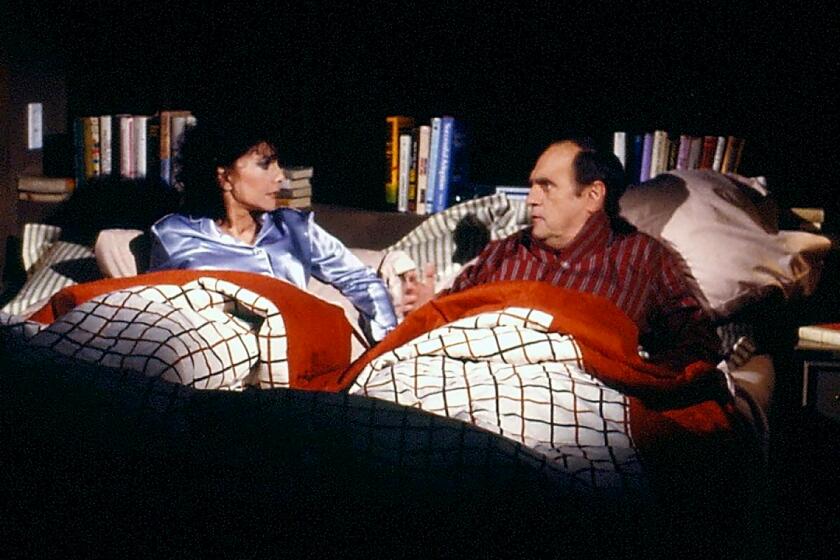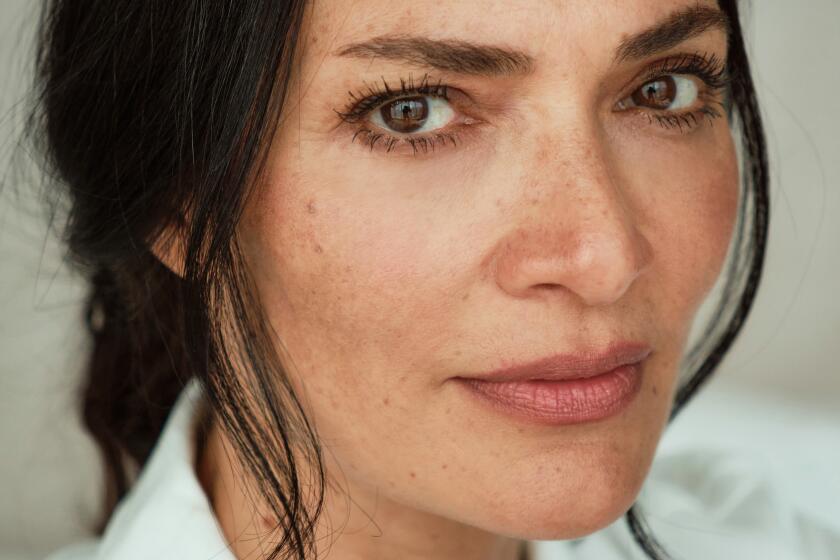Refocusing on Hidden-Camera Debate
KCBS-TV Channel 2 has stirred up viewer interest and government action with this week’s investigative series looking at unsanitary conditions at a number of Los Angeles County restaurants.
The undercover reports by “I-Team” reporter Joel Grover--using graphic hidden camera footage to show numerous health code violations, rodent and insect infestation and improper food handling and storage--scored some of the highest ratings for KCBS News in about 10 years, station officials said. The Board of Supervisors also reacted to the four-month investigation, calling for a complete review of the county health department’s restaurant inspection process.
But the series, “Behind the Kitchen Door,” which concluded that many local restaurants “repeatedly fail” inspections by the Los Angeles County Department of Health yet remain open, has also reignited debate among attorneys and others over the legality of how hidden camera footage is obtained.
In the KCBS series, researchers were hired at the restaurants who then shot video without knowledge of the establishment.
Elements of the investigation echo a controversial 1992 ABC News undercover expose that charged that Food Lion Inc. sold tainted meat and fish to customers. The “PrimeTime Live” investigation drew angry denials and a lawsuit from Food Lion, charging that ABC employees committed fraud, trespassing and breach of loyalty by misrepresenting themselves in applying for jobs at the stores in order to obtain incriminating footage.
A North Carolina jury earlier this year awarded Food Lion $5.5 million in punitive damages in the suit. The award was reduced to $315,000 last August, but the case is still pending due to an appeal by ABC News.
Commenting on both the ABC News case and the KCBS investigation, Doug Mirell, a Los Angeles attorney specializing in 1st Amendment law, said, “These kinds of investigations are incredibly important from a public health and safety perspective. But they are also, in this legal environment, very dangerous to undertake. Unfortunate as it may seem, I think there is a serious question whether this kind of activity will be upheld.”
Mirell said there are several cases pending before the California Supreme Court dealing with hidden-camera investigations, and that there is still uncertainly about the protection of privacy in such investigations.
“It is taking some risk,” he said.
Erwin Chemerinsky, a professor of law at USC who also specializes in 1st Amendment issues, said: “The law is uncertain about this--at what point there is a basis for liability on entering a workplace under false pretenses to shoot video. In my view, it is so essential to the news-gathering process that there would be 1st Amendment protection, so long as the reporter is acting responsibly.”
But Richard L. Wyatt, lead attorney for Food Lion in the ABC case, said, “These cases [like Food Lion and KCBS] are distinguishable from ordinary defamatory cases by their use of investigative methods that violate commonly applicable state and local laws, such as the methods used by ABC in the Food Lion case.”
KCBS General Manager and Vice President John Culliton said the station was on firm legal ground in the gathering of information for the restaurant series. “I absolutely feel that what we’ve done journalistically is legal,” Culliton said Wednesday. “We feel it’s ethically correct as well, and oftentimes these kinds of stories come down to both.”
Sylvia Teague, executive producer in charge of the station’s investigative team, said KCBS consulted with CBS News before undertaking the restaurant story, and that there were “clear restrictions before we went forward with anything.” She added, “The only similarity between this and the Food Lion case was that people who were hired were working undercover.”
Culliton said there are laws that protect citizens from invasions of privacy, but not where there is no reasonable expectation of privacy, such as in a restaurant kitchen. “Health inspectors could and should have been inside the same kitchen,” he said.
Since Sunday, when the KCBS investigation started, none of the restaurants that were named have contacted the station threatening legal action, Channel 2 officials said. One restaurant, Revival Cafe, asked the investigative team to return to show the cleaned-up conditions in the kitchen and the restaurant.
The complete guide to home viewing
Get Screen Gab for everything about the TV shows and streaming movies everyone’s talking about.
You may occasionally receive promotional content from the Los Angeles Times.




